The Cycle of Giving and Receiving
“We are so often caught up in our destination that we forget to appreciate the journey, especially the goodness of the people we meet on the way. Appreciation is a wonderful thing. Don’t overlook it.”
How does gratitude help your well-being?
Did you know that feeling gratitude and appreciation could be your new happiness pill?
We can explain gratitude as “noticing and appreciating the positive in the world” . Neuroscientist, Alex Korb, explains that when we search for things to be grateful for this activates the part of our brain that releases the feel-good hormone dopamine. It can also boost serotonin production which is a brain and gut chemical neurotransmitter (low levels of these chemicals is actually associated with depression).
The Gratitude Emotion
Feeling gratitude could include:
- the appreciation of other people’s help;
- feelings of awe when we see something amazing;
- focusing on the positive in the ‘here and now’ moments;
- an appreciation rising from the understanding that life is short.
Some people worry that they won’t be able to find anything to be grateful for. While it’s true that on some days it may be harder than others when searching for things to be grateful for, Korb reminds us that “it’s not finding gratitude that matters most; it’s remembering to look in the first place.”
“Gratitude is the healthiest of all emotions. The more you express gratitude for what you have, the more likely you will have even more to express gratitude for.” Zig Zeglar
Gratitude can change our thinking habits. Regularly spotting the good things in our life can also make it more likely that we see more positives, even when we’re not looking for them.
Gratitude engenders a deep sense of appreciation for what we have in life. And appreciation makes us thankful. In our modern world we have strong tendency toward always wanting more, never thinking we have enough or that we ourselves are enough.
There is one simple way to express gratitude in life- simply start from a base of satisfaction instead of dissatisfaction, and know that usually what you have is already enough.
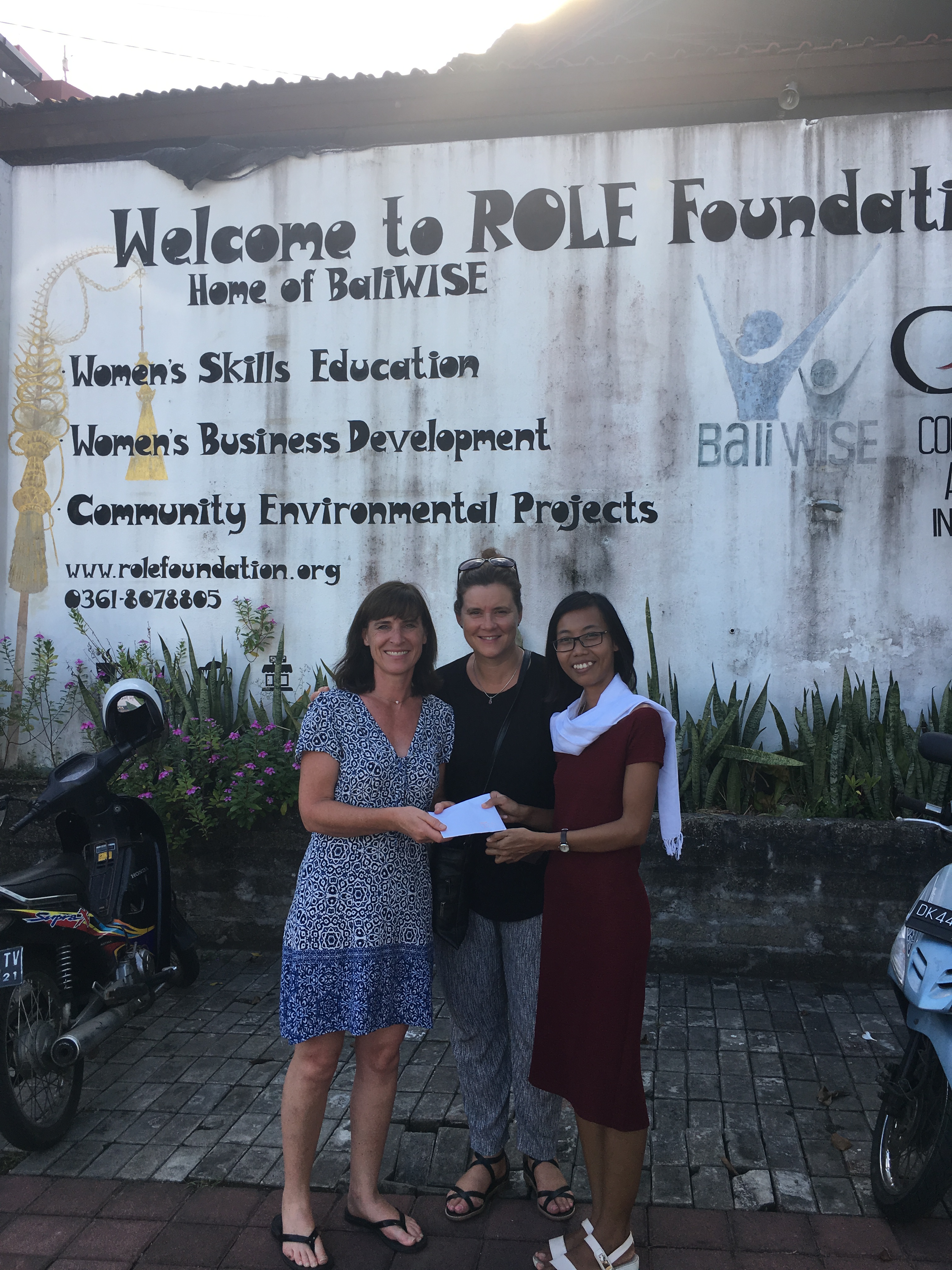 It takes $800 AUD to sponsor one student through the 6 month vocational training program.
It takes $800 AUD to sponsor one student through the 6 month vocational training program. Connect with Compassion for marginalised women in Bali
So, let’s get back to the basics of life, and find the things to be grateful for.
One of the fundamental driving forces in our motivation to start the Connect with Compassion not-for-profit health and education project is simply that we feel incredibly grateful for the fortunate lives we have been granted. Our intention is to provide financial support to those living in physical hardship whilst simultaneously cultivating mindful gratitude for the simple things we often take for granted in our more affluent western lives.
Our recent Connect with Compassion journey to Bali was planned to coincide with International Women’s Day (March 8th, 2018), and we chose to connect with the Bali WISE organisation that empowers marginalized women through provision of vocational education.
So we quickly became aware of some simple things to be thankful for.....
What does it mean to be a marginalised person? We easily find a definition: “to put or keep (someone) in a powerless or unimportant position within a society or group”. So, how does reading a definition actually give us insight as to what this really means for a human being? Spending time here in Bali, and previously in Nepal, has highlighted for us how different people’s lives are when their society chooses to exclude certain groups from basic human rights of equality. Our recent week brought this message home – hard enough to smack us right in the middle of our hearts and feel it constrict with the injustice.
In Indonesia, an unskilled woman will earn approximately $70 per month: in comparison to a skilled woman in Indonesia who has the capacity to earn $200 per month.
Yes, I’m already feeling grateful- that that is not me……
Here are my recent three things to be grateful for:
1. Gratitude for having skills & education to become an independent woman
As a health professional, I am truly grateful for our Western society’s expectation that an education is important, regardless of gender. I am thankful for the primary and secondary education that is a compulsory requirement and for the opportunity and freedom to choose to pursue further education, and create a professional career as a woman.
Research shows that an individual’s wellbeing impacts other people in three degrees of separation from us. Educated women usually want a healthy environment for their families, making sure that their children are educated and are in better health. This is the simplest cycle of giving and receiving. Give them an education, and receive the benefit across society.
There is a gender bias with most Indonesian families prioritizing their boys to go to school if they have limited resources. Indonesian women are affected by the need to continue with their household and cultural duties versus the increasing need to contribute economically. These financially challenged women are expected to give most of their meagre salary back to their poor families, leaving little for any chance of future development and livelihood. Unskilled women are open to manipulation such as prostitution, trafficking and slave labour.
BaliWISE is an organisation that empowers marginalized women through skills education, as a means to develop sustainable communities in Indonesia.
BaliWISE removes the barriers preventing disadvantaged Indonesian women from accessing further education and securing paid work.
Thanks to BaliWISE there are now many more Indonesian women feeling gratitude to their skills and education that has opened a doorway to independence.

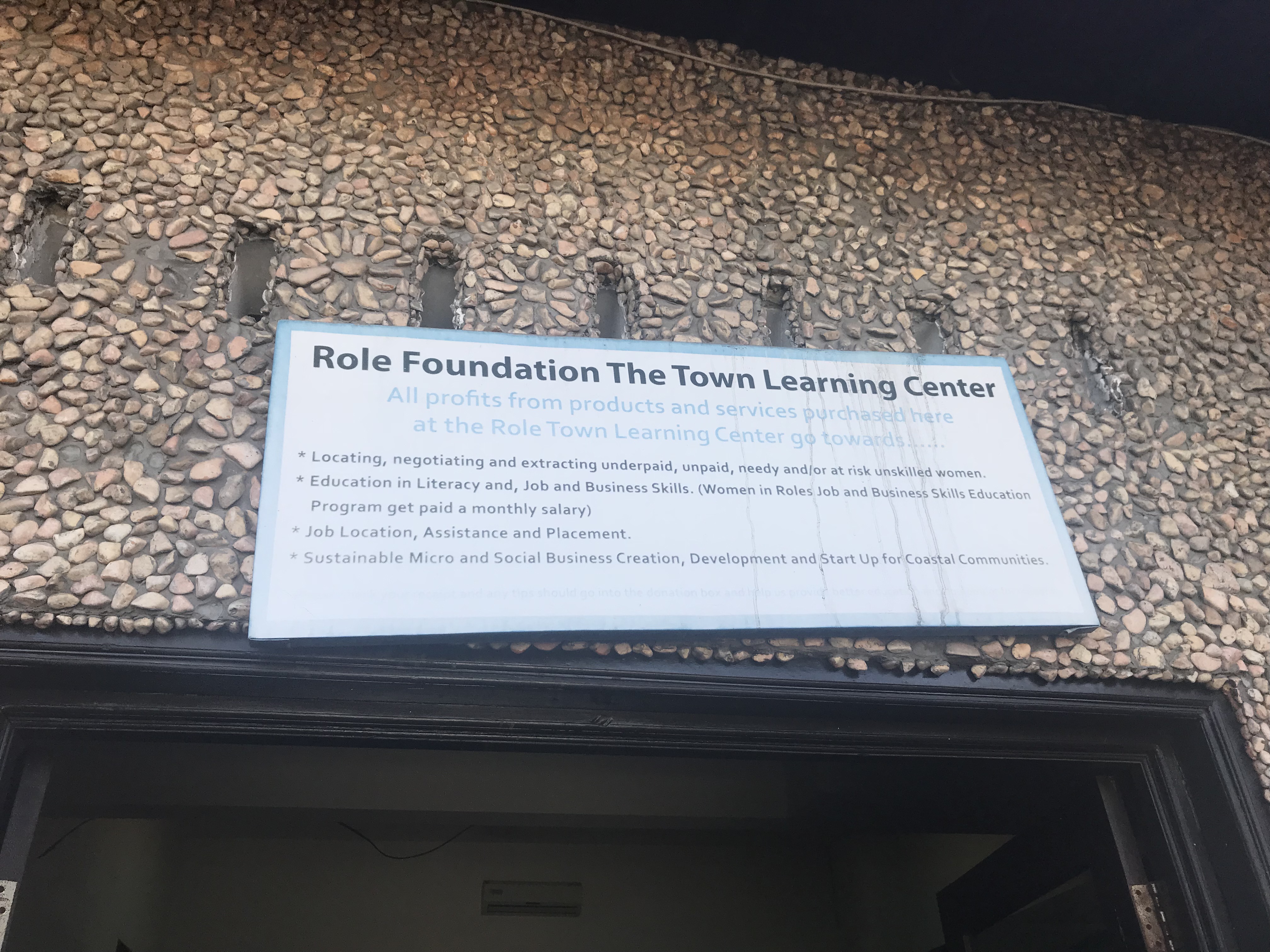
2. Gratitude for the simple things in our lives-
(like undies!)
Besides the six-month Skills Education course, Bali WISE also provides accommodation, 3 meals per day, uniforms, educational resources and an allowance for of $50USD per month so students can send money home.
A story was shared with us whilst working with the Bali WISE manager, Fena. Part of the girls’ education includes life skills, women’s health and general hygiene advice. It was mentioned that these girls sometimes require basic advice on simple things like changing their underwear daily, and why this is so important from a women's health perspective.
After one of the education sessions, a student was found rushing off on the back of a motorbike to her home village. When questioned what the hurry was, she proclaimed she was off to use her allowance to buy her mother some underpants to wear: a luxury in the life of an impoverished woman.
Such a simple thing we can so easily take for granted on a daily basis. Be grateful for your undies!
3. Gratitude to share and receive a smile
“Smile- it is the key that fits the lock of everybody’s heart” Anthony J D’Angelo
I am grateful for having an ability to share a smile with others and feeling the joy of receiving the gift of a smile in return.
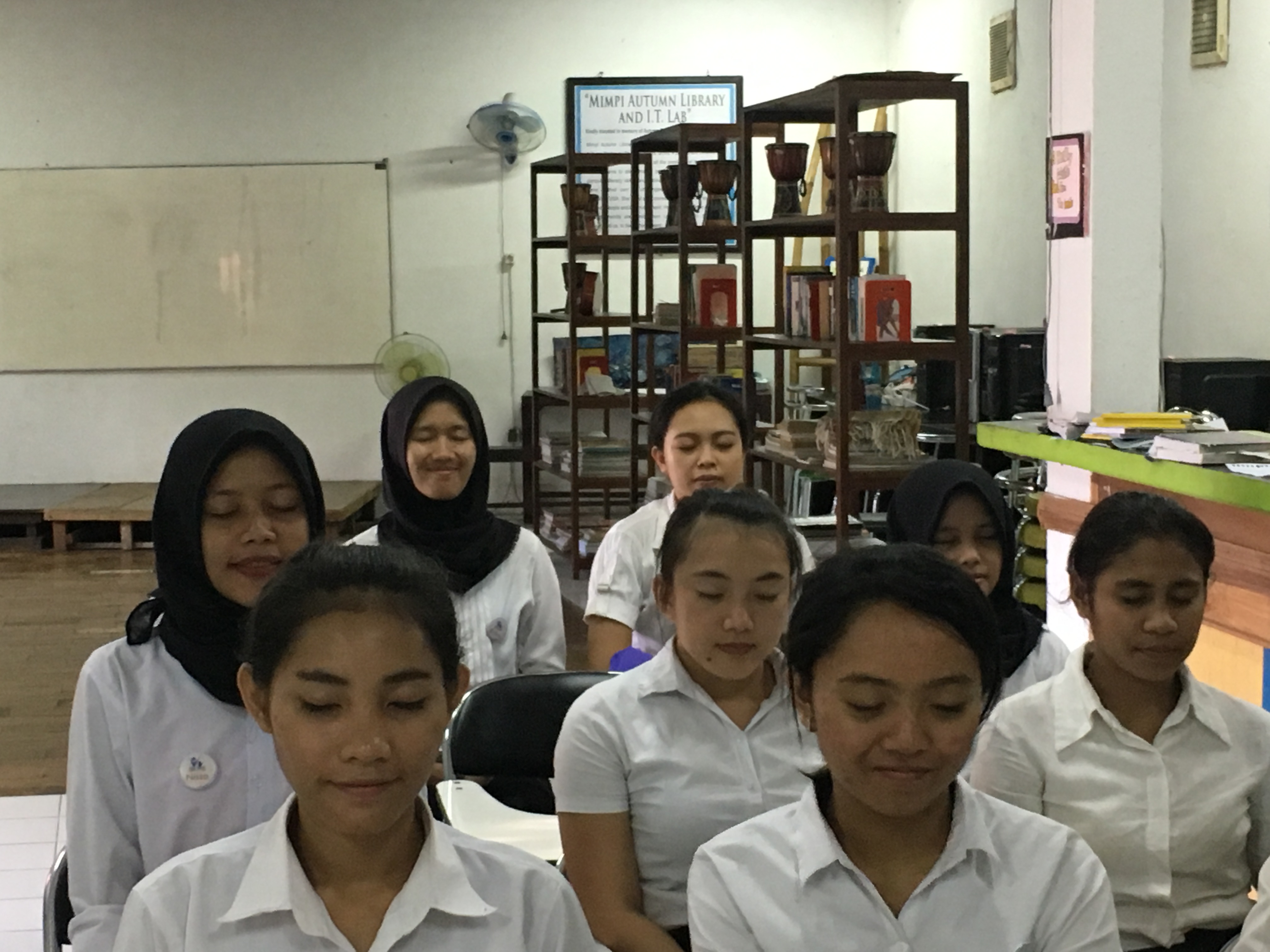
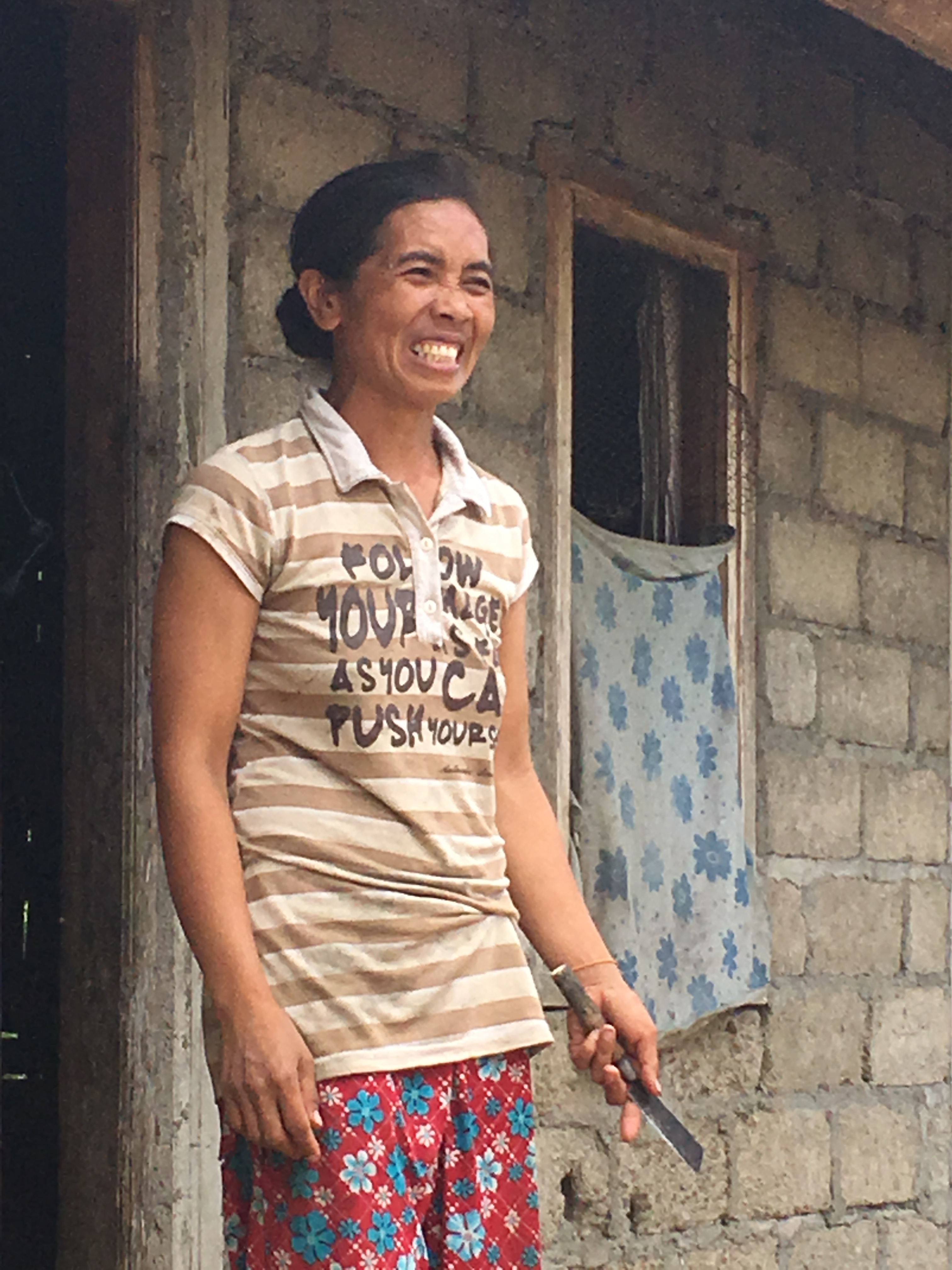
Smile and receive the joy of being smiled at in return!
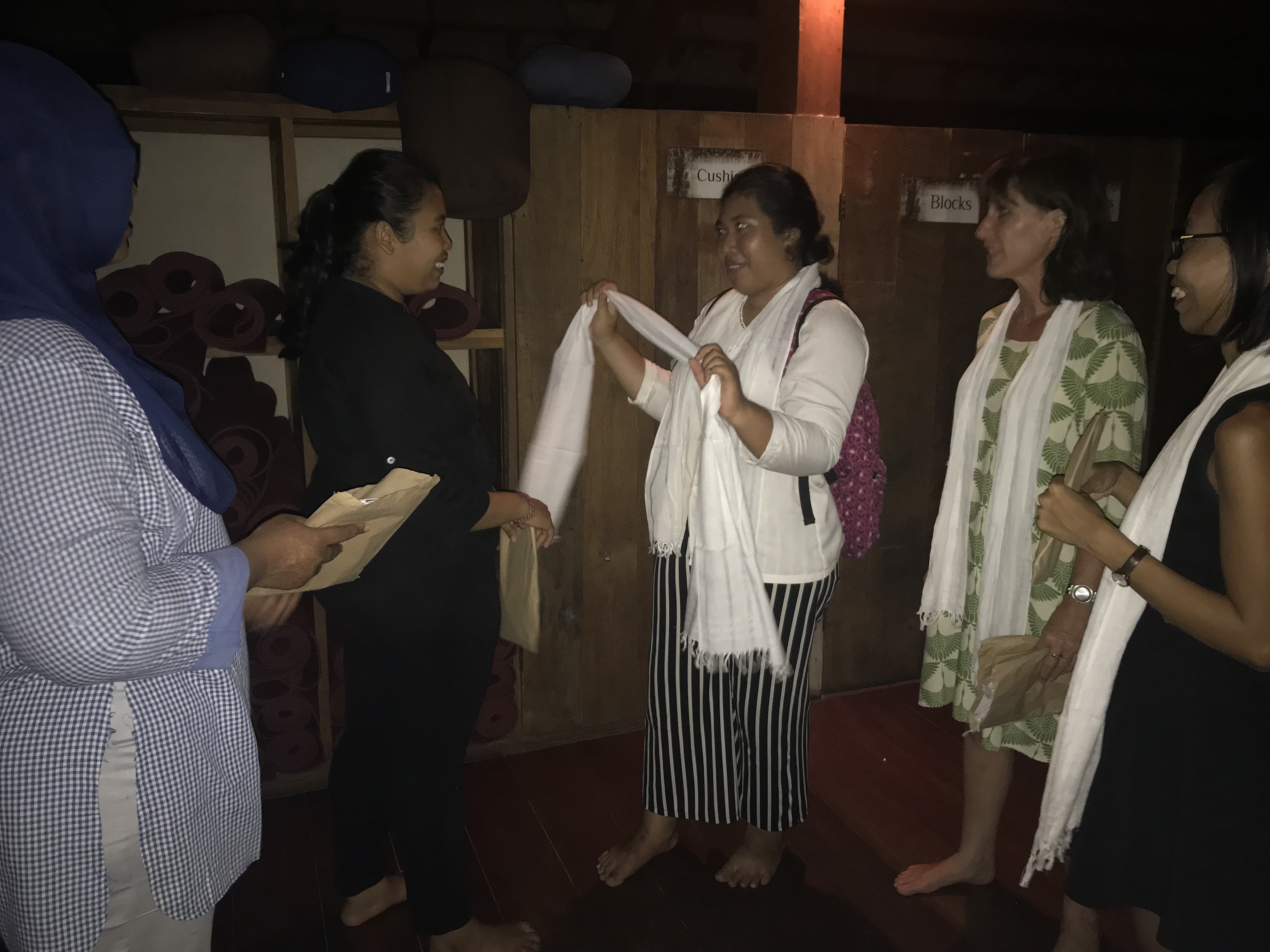
Connect with Compassion:
Giving and Receiving
Our Connect with Compassion cycle of giving and receiving endeavours to support those in physical hardship in developing countries.
Our mission is for Connect with Compassion to embed mindfulness in individual’s lives and also within communities for connection of the human spirit. To celebrate International Women’s Day 2018, we facilitated a range of fundraising activities that aim to embed mindfulness and connect humans.
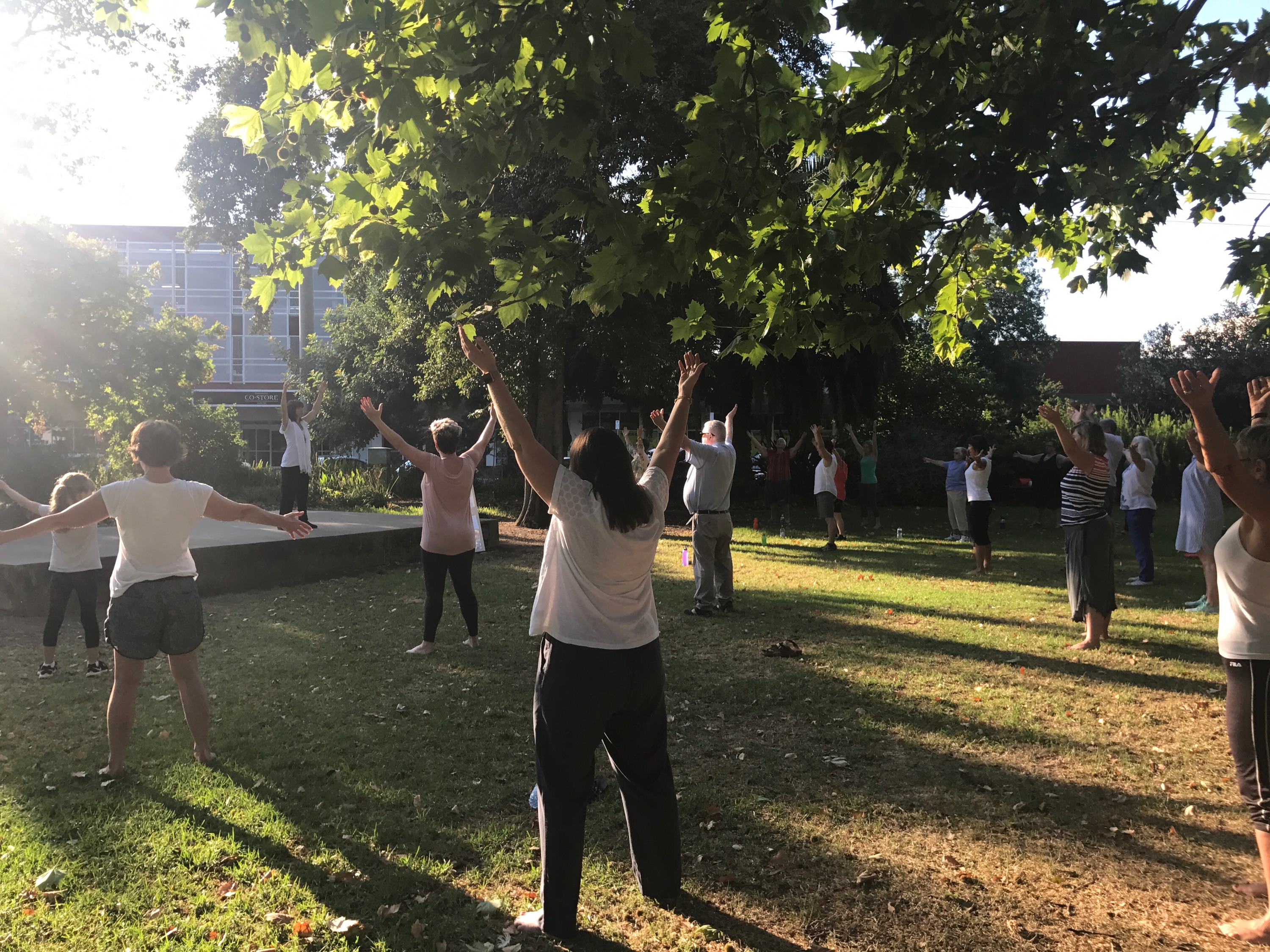
Tai Chi in the Park Wangaratta, Victoria
.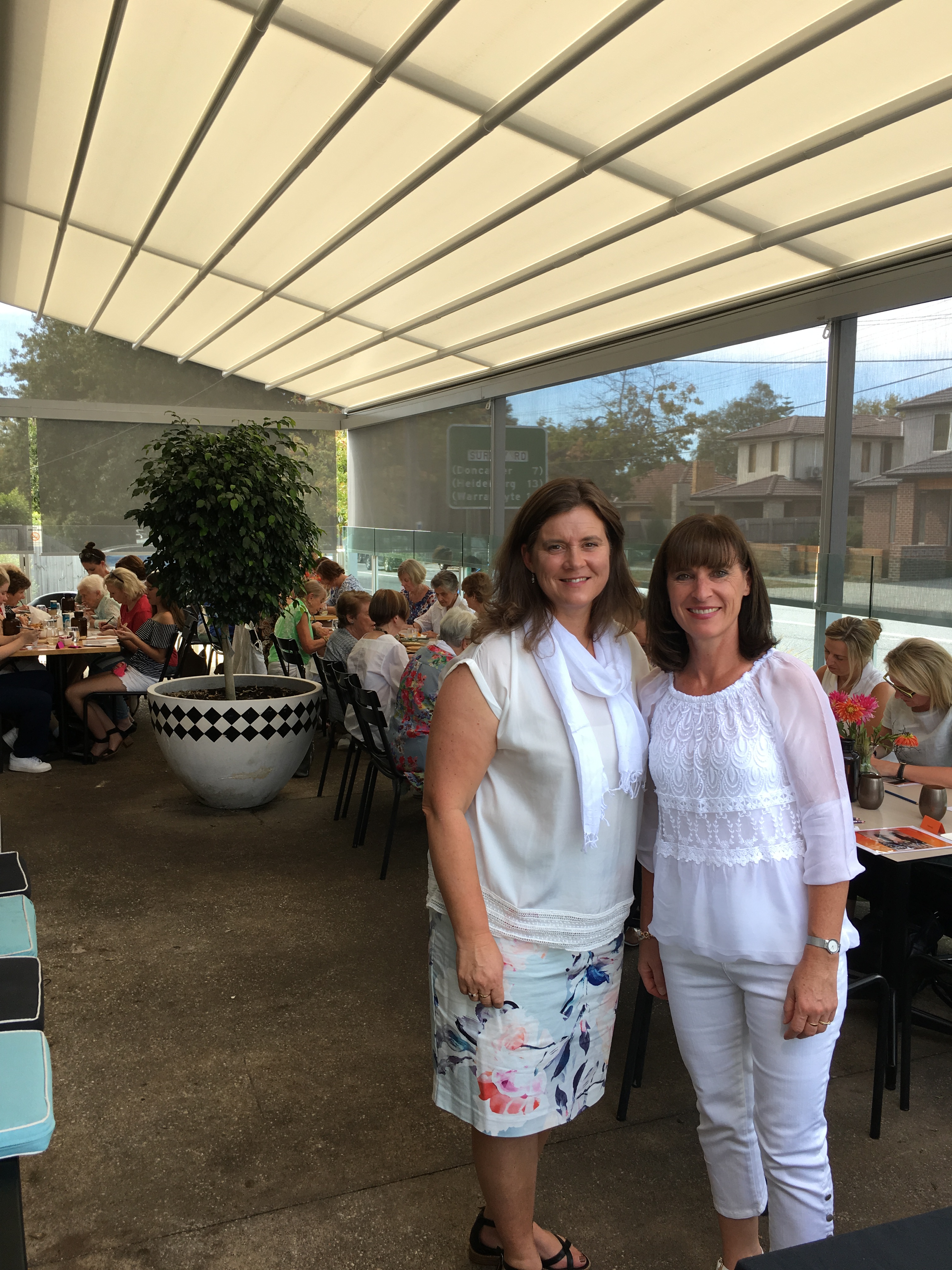
Women gather for White Day lunches to wear the white scarf of compassion for self and to serve others
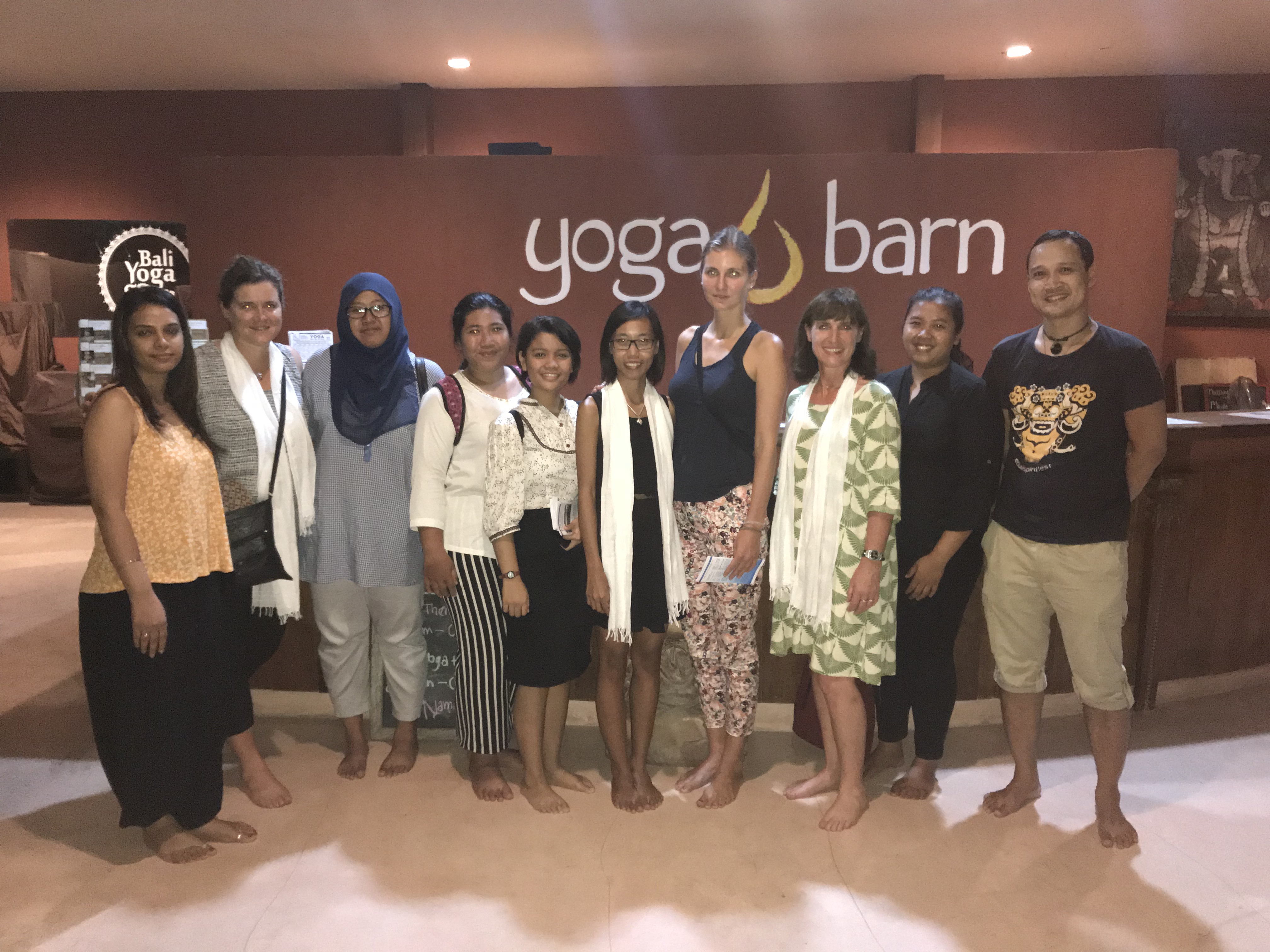
Bali WISE with support from the Yoga Barn, Ubud
FUNDRAISING ACTIVITIES: We have hosted Tai Chi in the Park, White Day Lunches of Compassion, film screenings of The Connection-Mind your Body at the Yoga Barn, Ubud, Bali and Seed Yoga, Blackburn, Australia. The generous donations from these events have generated nearly $3000 . The collective fundraising capacity is enough to give the gift of education to four young Indonesian women. Our sponsored new students of Bali WISE will start in April 2018 to complete the 6 month vocational training scholarship with skills in hospitality, business, and literacy.Bringing Mindfulness into the Balinese classroom
Whilst working with a group of 25 young women (aged 18-24) at the vocational training centre of BaliWISE last week, I was moved by the sentiments expressed by these hopeful young adults in the mindfulness and reflection tasks I did with them. The first part of the exercise is a guided Loving Kindness meditation (metta). This is an ancient Buddhist meditation that intends to share kindness and compassion firstly to self and then to all beings, in the name of world peace.
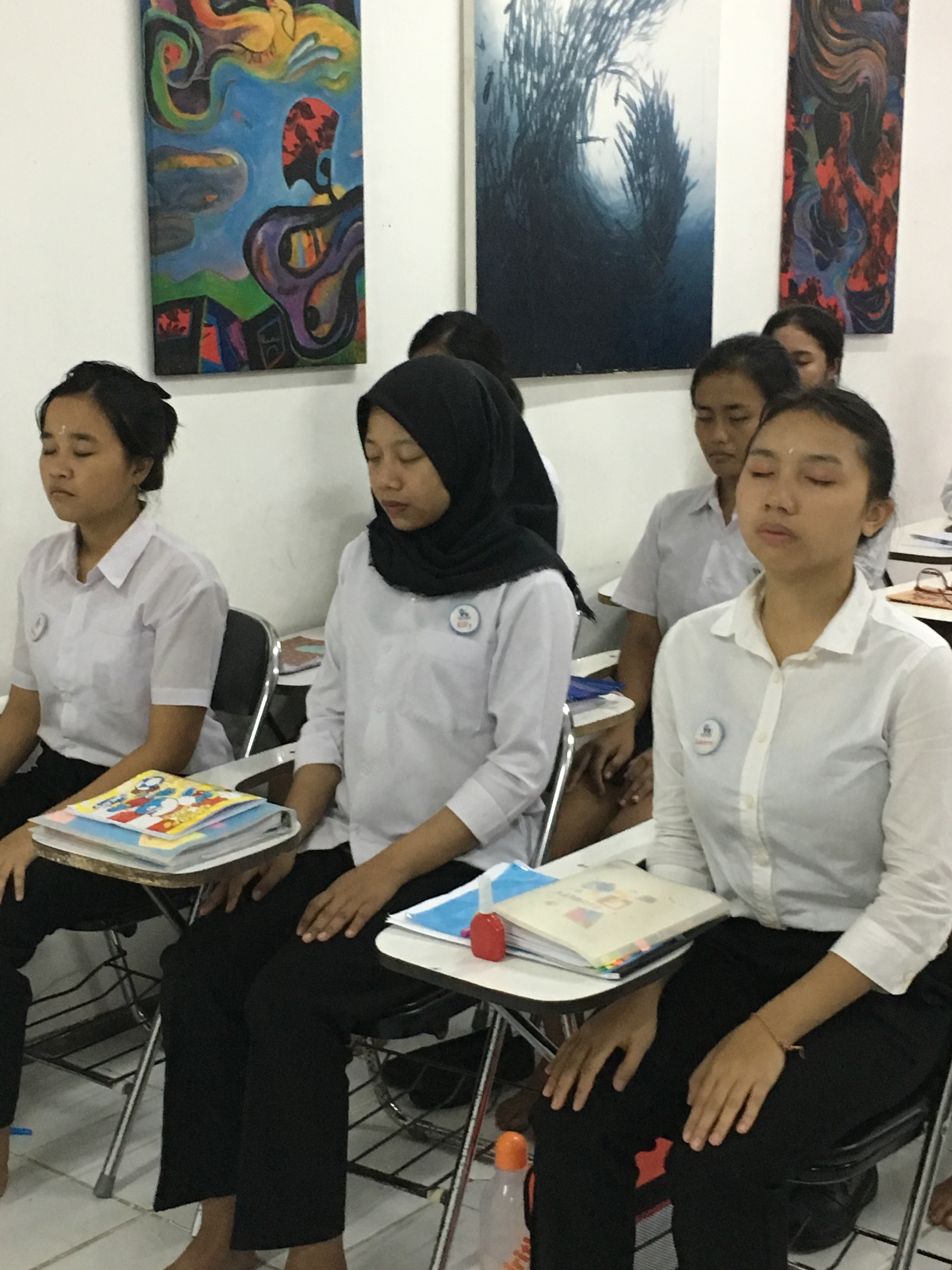
“Be kind whenever possible. It is always possible”. Dalai Lama
It starts by wishing for self:
May I be safe and free from suffering
May I be happy and healthy
May I live with ease
It follows by extending these same wishes further to our loved ones, our friends and community, our nation, even to those we have difficult interactions and communications with.
The Loving Kindness meditation is followed by a mindful colouring exercise, using the Mandala of Compassion. The girls quickly became silent and absorbed with their colouring pencils following the lines, curves and shapes of this symbol of meditation. The girls were totally in the moment, simply being, with pencils and mindful moments of watching their creations emerge.
The third part of the exercise is for the girls to outline the shape of their own hand and then choose five core value words that best describe who they are or how they would like to live their lives. In each of their drawn fingers they had the opportunity to include what they value most in their life.
When I asked the class to read out one word that was very important to them, I was struck by the number of times these girls read out the word “Independent”. Their desire is to be independent, to be able to be economically sustainable, to be independent to make their own choices, to break free of the cultural cycle that usually traps them in spending their lives committed to household chores, and working rice fields earning barely enough to sustain living.

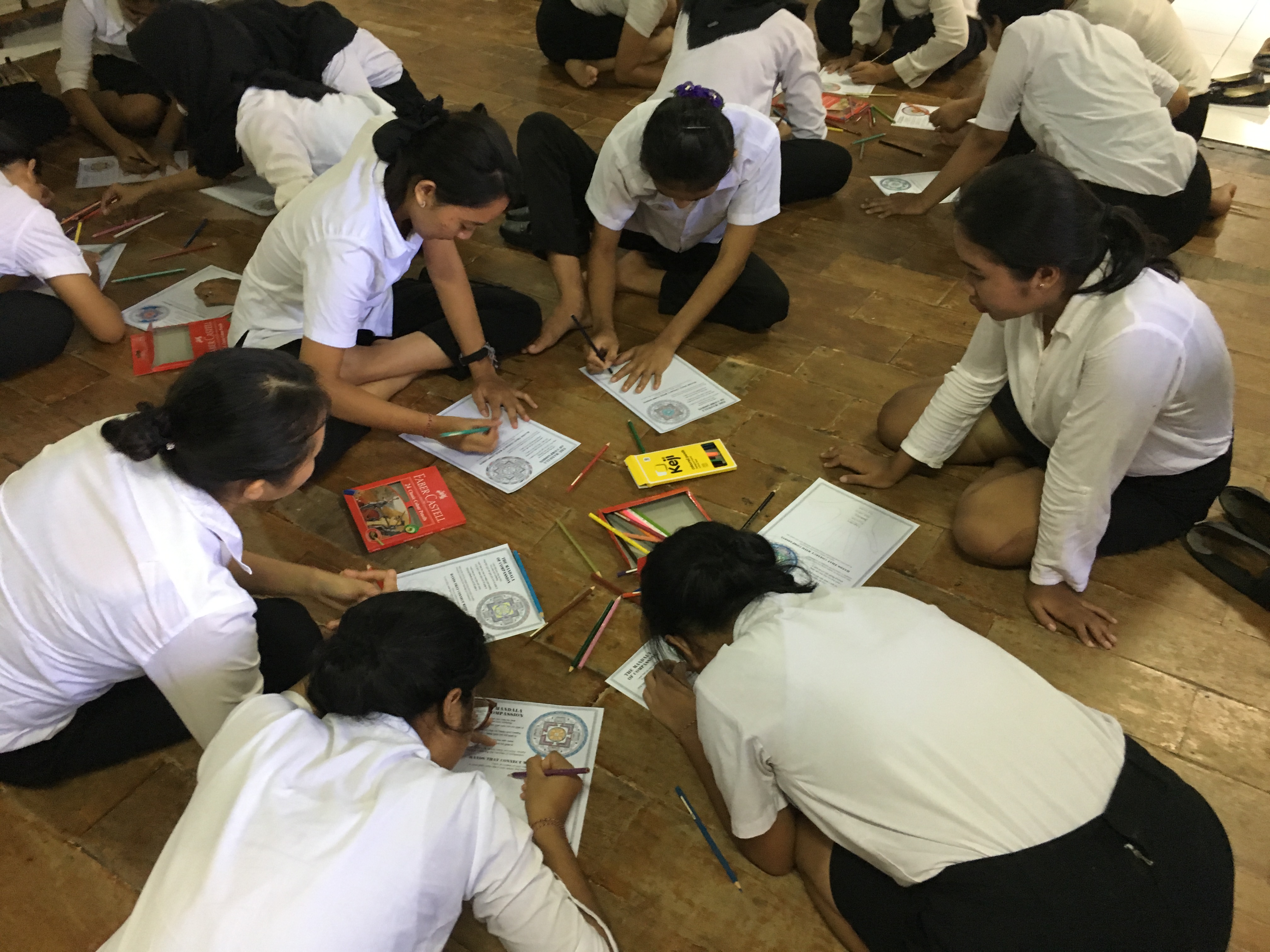

When 10% more girls go to school, a developing country’s GDP increases an average of 3%.
The life of a marginalised woman is so hard, regardless of the country she lives in. Malnutrition and poverty hit women hardest. Women usually worked harder and longer than men. Unskilled women get pregnant earlier and have more children than their educated peers, continuing the poverty cycle. These Balinese / Indonesian woman want the simple gift of independence and a potential to break free from poverty. We had a similar experience last year when in Nepal working with the disabled and marginalised women at the Seven Women organisation. Their one word that seemed to keep appearing as a core value was freedom.
It was my gut-wrenching realisation that this is what it means to be a marginalised woman: the absence of freedom and independence. It struck me how easily I may have taken for granted my status as an independent western woman who is free to choose safety and protection, happiness and health, education and aspiration, and a certain measure of peace in my life.
Let us not under-estimate the value of freedom and independence as women in our western society.
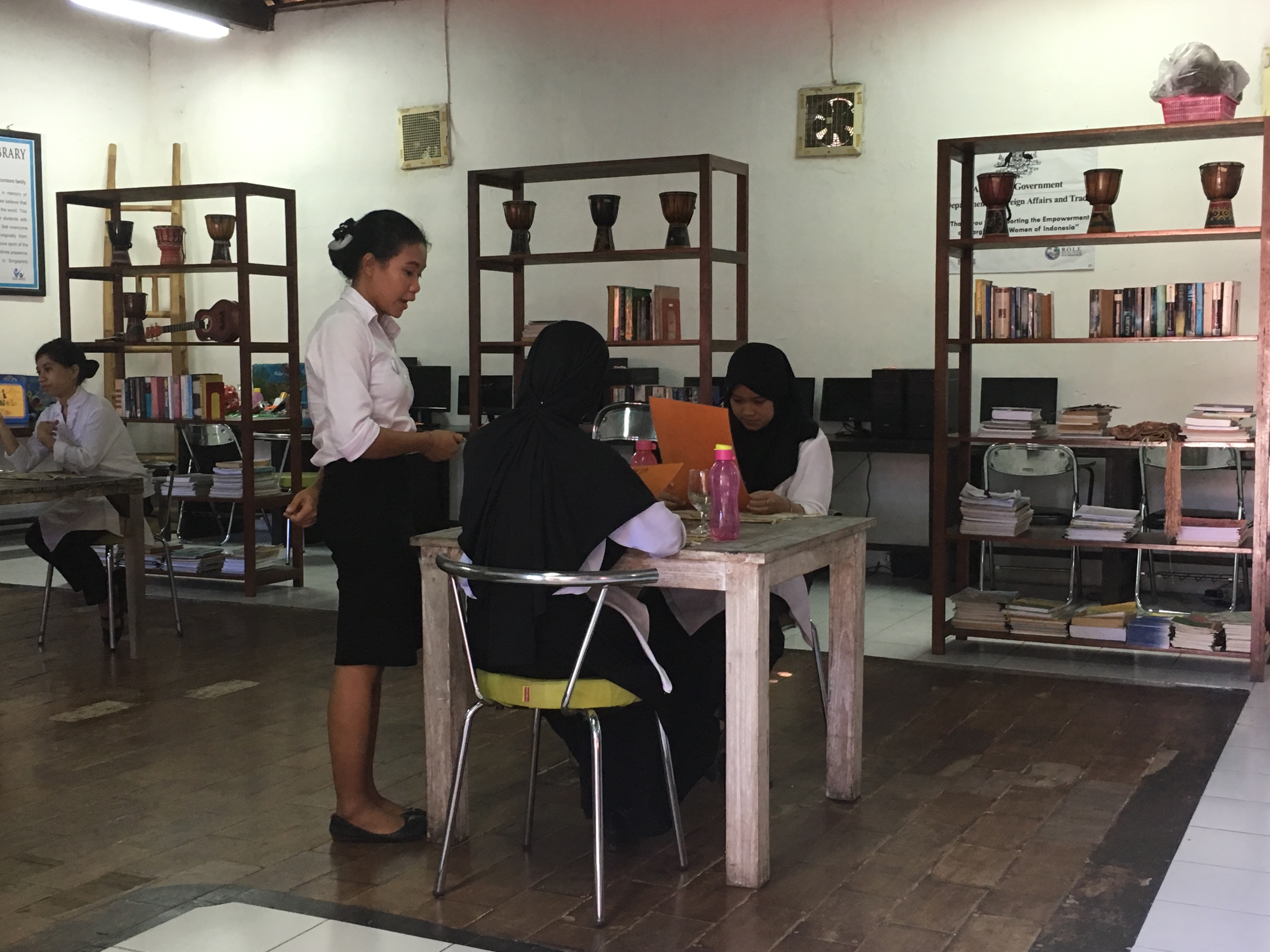
BaliWISE Hospitality practice sessions
The students were practising their hospitality skills on each other in this class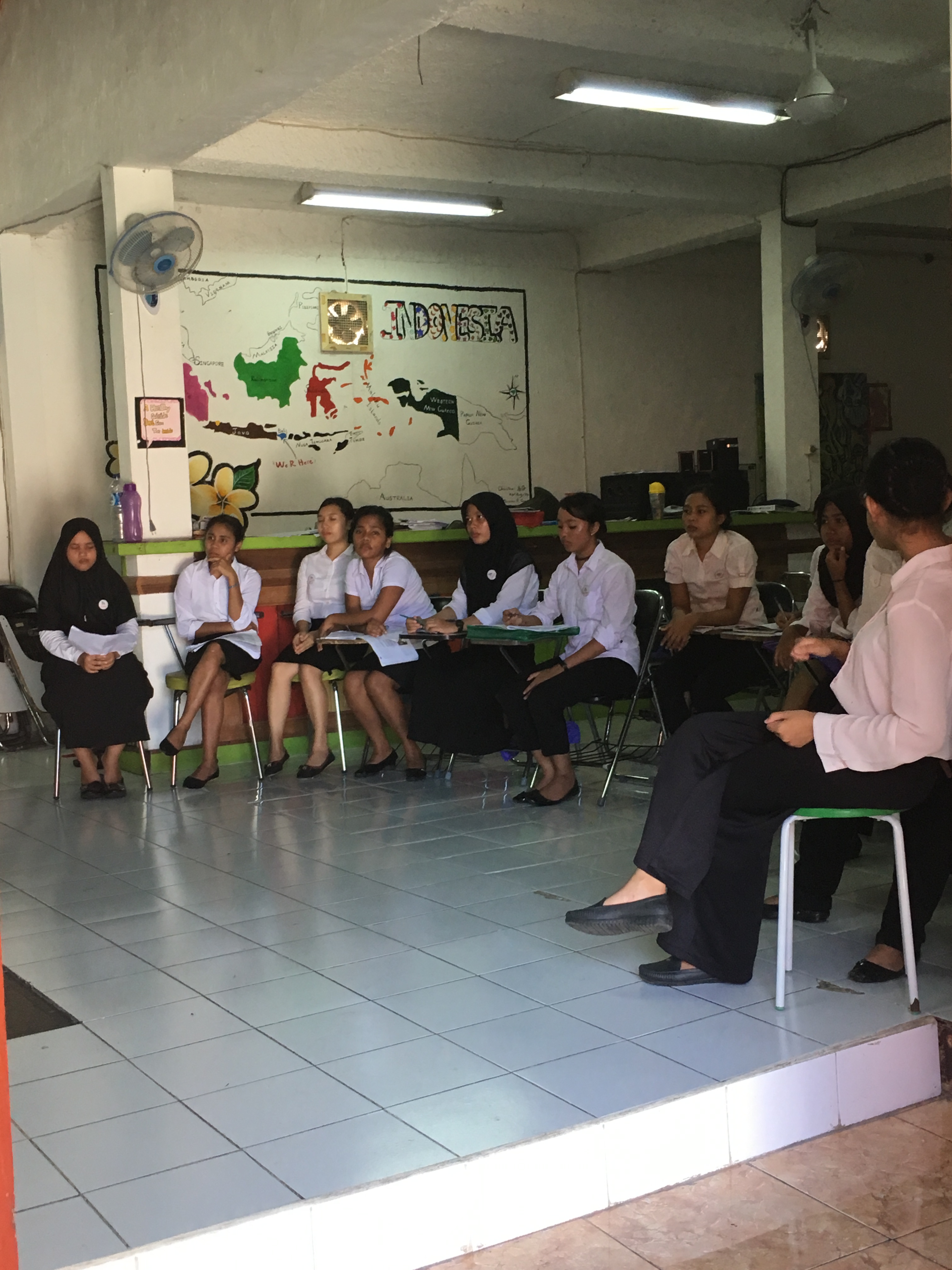
Education in business & literacy

The shared dormitory- the students love the camaraderie of their cohort and are grateful for their opportunity to learn.
Cultivate an Attitude of Gratitude
Expressing gratitude provides a path to more positive emotions. People who express more gratitude have also been found to have better physical and psychological health.
One study by Woods, Froh and Geraghtymore than one thousand people, from ages eight to 80, and found that people who practice gratitude consistently report a host of benefits:
Physical benefits of gratitude:
- Stronger immune systems
- Less bothered by aches and pains
- Lower blood pressure
- Exercise more and take better care of their health
- Sleep longer and feel more refreshed upon waking
Psychological benefits of gratitude:
- Higher levels of positive emotions
- More alert, alive, and awake
- More joy and pleasure
- More optimism and happiness
Social benefits of gratitude:
- More helpful, generous, and compassionate
- More forgiving
- Feel less lonely and isolated
- More outgoing
“Feeling gratitude and not expressing it is like wrapping a present and not giving it.” ~William Arthur Ward
Make Gratitude a verb- just do it!: whether it’s writing in a gratitude journal, sending out a thankful note, or saying “thank you” to people you love, there are countless ways to express appreciation and thankfulness. Ask yourself daily:
"What can I be thankful for? "
"Who can I thank today?"
How can I "savour the goodness of this moment"?
Keeping a gratitude journal allows us to focus on the positive things. It teaches us how to strengthen our ability to spot them in the first place – and how to savour them.
Grab a journal and, before you go to sleep each night, write 3 things that went well that day and why you think they went well. And write down something to look forward to tomorrow. Keep doing it for a week. That’s it.

"Gratitude turns what you have into enough"
